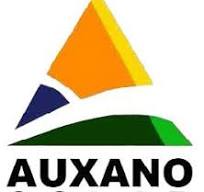Auxano Solar, a Nigerian solar panel manufacturer, has achieved a significant milestone by securing international certification for its locally assembled photovoltaic (PV) modules. This achievement marks a turning point for Nigeria’s renewable energy sector, signaling the country’s growing capacity to produce high-quality solar technology that meets global standards. The certification, granted by TÜV Rheinland, a renowned international testing and certification body, validates the quality, safety, and performance of Auxano Solar’s panels under the IEC 61215 and IEC 61730 standards. This recognition positions Auxano Solar as a key player in Nigeria’s burgeoning renewable energy market and opens doors for participation in large-scale energy projects and export opportunities.
The certification process was facilitated by the Global Energy Alliance for People and Planet (GEAPP) in collaboration with All On, an off-grid energy impact investing company seeded by Shell. This support highlights the importance of strategic partnerships in fostering innovation and driving sustainable development within the renewable energy sector. Caroline Eboumbou, the global CEO of All On, emphasized the significance of Auxano Solar’s achievement, stating that it demonstrates the potential of local innovation when coupled with adequate resources. The certification not only validates the quality of Nigerian-made solar technology but also lays the groundwork for a more sustainable and inclusive energy future in Nigeria.
Auxano Solar’s CEO, Chuks Umezulora, expressed immense pride in being the first indigenous manufacturer to receive this prestigious TÜV certification for solar panels in Nigeria. This accomplishment underscores the company’s commitment to quality and innovation within the solar energy sector. He emphasized that this milestone builds trust in locally produced solar panels, paving the way for greater acceptance and adoption within the Nigerian market. Umezulora envisions Nigerian solar panels attaining the same level of recognition and reliability as Nigerian-manufactured cables, which have established a strong reputation for quality.
The IEC certifications acquired by Auxano Solar are not just a testament to the company’s dedication to quality; they also serve as a catalyst for the development of the local solar energy value chain. By enhancing local production capabilities, this achievement contributes to making solar power more accessible and affordable for Nigerians. This, in turn, has the potential to significantly impact energy access and affordability across the country, contributing to broader socio-economic development. The increased availability of affordable solar power can empower communities, businesses, and individuals, driving economic growth and improving living standards.
Auxano Solar’s certification strengthens its position to participate in and contribute to crucial government and donor-backed initiatives focused on expanding electricity access across Africa. These initiatives, including the Nigeria Electrification Project (NEP) and the Distributed Access through Renewable Energy Scale-up (DATRES) programme, are supported by prominent international organizations like the World Bank, African Development Bank, GEAPP, the Rockefeller Foundation, and Sustainable Energy for All (SE4All). These programs aim to address the significant energy deficit across the African continent, bringing electricity to 300 million people by 2030. Auxano Solar’s participation in these initiatives can significantly contribute to achieving these ambitious goals.
With a 100-megawatt capacity solar panel assembly plant in Ibeju Lekki, Lagos, Auxano Solar has already distributed nearly 15 megawatts of solar panels within Nigeria. This demonstrates the company’s existing capacity and its potential to scale up operations to meet the growing demand for renewable energy solutions. The TÜV certification further enhances the company’s credibility and attractiveness to potential investors and partners, enabling it to play a pivotal role in driving the adoption of solar energy across Nigeria and beyond. This milestone represents a significant step forward for Nigeria’s renewable energy sector and underscores the potential for local innovation to drive sustainable development and transform the energy landscape.













